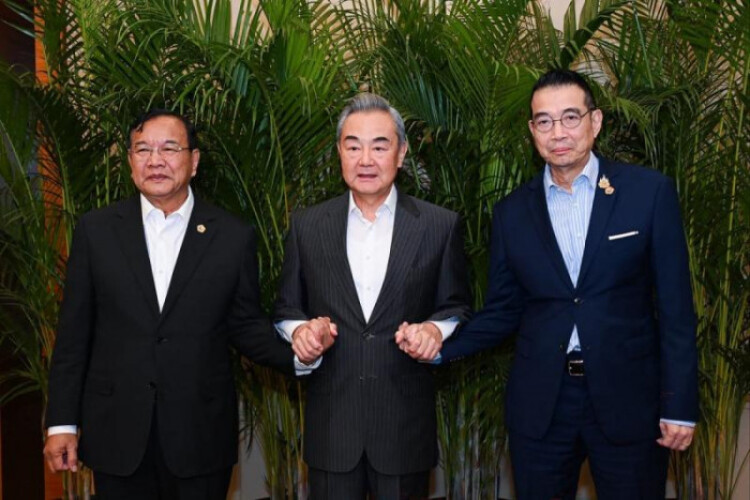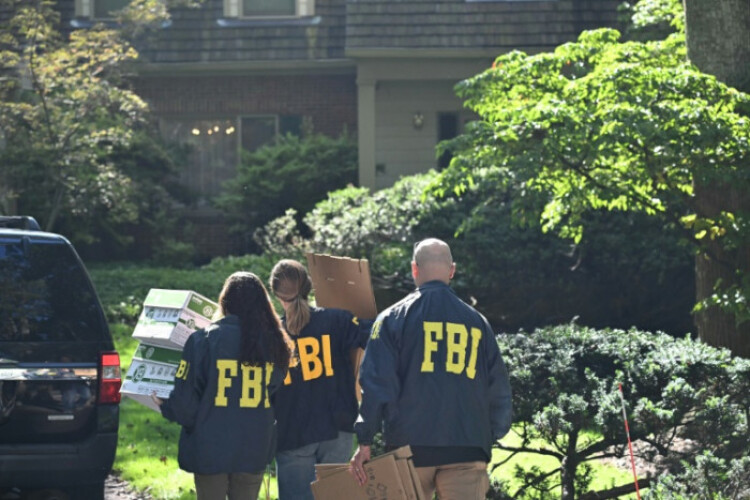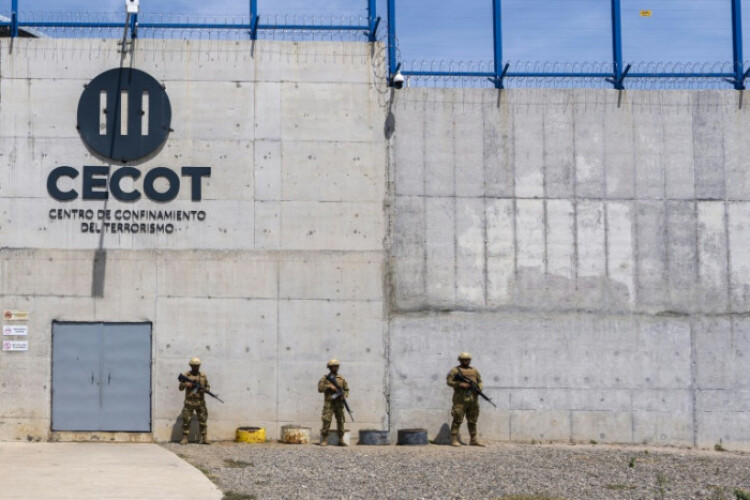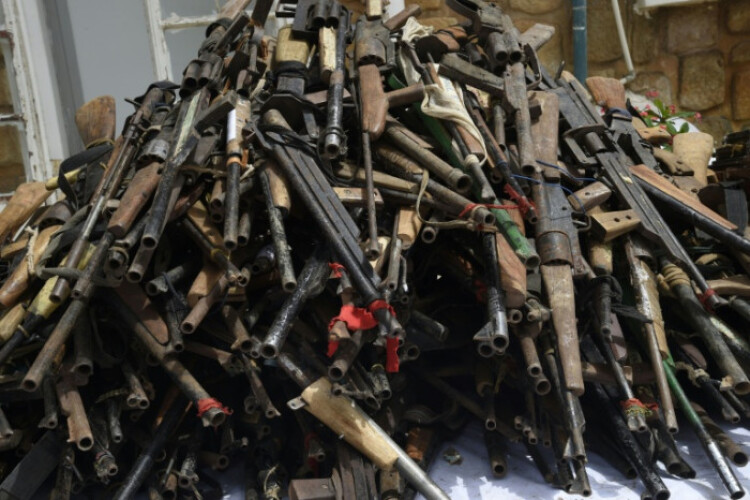
SHANGHAI — China hosted the Thai and Cambodian foreign ministers for "friendly and candid" talks on Thursday, with both sides pledging to work towards a peaceful solution to a simmering border dispute.
The informal "tea meeting" took place on the sidelines of the Lancang-Mekong Cooperation Foreign Ministers' Meeting in the southwestern city of Anning in Yunnan province, according to the Chinese foreign ministry.
Chinese Foreign Minister Wang Yi told his Thai counterpart, Maris Sangiampongsa, and Prak Sokhonn, the Cambodian deputy prime minister who also serves foreign minister, that Anning meant peace and harmony in Chinese and this should be the guiding principle for relations between neighbours.
Wang said China supported Cambodia and Thailand in engaging in dialogue, dispelling misunderstandings, rebuilding mutual trust and restoring normal exchanges and cooperation.
"Both Cambodia and Thailand have shown they don't want continued border conflicts and are willing to restore dialogue," Wang said.
"China supports both sides to reopen border crossings to meet people's needs."
Thailand and Cambodia have long-standing border disputes, mainly over contested areas near ancient temples. Relations deteriorated in May after a Cambodian soldier was killed in a border skirmish.
Clashes erupted again in late July after a landmine explosion wounded five Thai soldiers.
At least 43 people were killed and over 300,000 others displaced on both sides of the border in five days of fighting.
The two countries signed a ceasefire deal last month after US President Donald Trump threatened not to make a trade deal with them until the fighting stopped.
According to China's foreign ministry, Wang also held separate meetings with his two counterparts.
Wang told Mr Maris that China supported the Association of Southeast Asian Nations (Asean) "in resolving its internal issues in the Asean way".
In a separate meeting with Prak Sokhonn, Wang said China hoped the two sides "will strengthen contact and exchanges to restore friendship and mutual trust".
China believed that the two sides could properly resolve their differences through dialogue and consultation, he added.
The Cambodian and Thai foreign ministers reaffirmed their willingness to actively implement the ceasefire agreement, and manage and resolve disputes peacefully, according to the Chinese foreign ministry.
In a social media post, Mr Maris said he expressed Thailand's appreciation for China's constructive role in supporting the peaceful resolution between Thailand and Cambodia.
Mr Maris said he also stressed the urgent need for Thailand and Cambodia to work together to demine the border zone "as an important step for reducing tension and restoring normalcy to the border areas".
On Friday, the Thai government will brief more than 50 diplomats from signatories and member states of the Ottawa Convention on repeated landmine incidents along the Thai-Cambodian border, emphasising Phnom Penh's refusal to cooperate in demining operations.
The informal "tea meeting" took place on the sidelines of the Lancang-Mekong Cooperation Foreign Ministers' Meeting in the southwestern city of Anning in Yunnan province, according to the Chinese foreign ministry.
Chinese Foreign Minister Wang Yi told his Thai counterpart, Maris Sangiampongsa, and Prak Sokhonn, the Cambodian deputy prime minister who also serves foreign minister, that Anning meant peace and harmony in Chinese and this should be the guiding principle for relations between neighbours.
Wang said China supported Cambodia and Thailand in engaging in dialogue, dispelling misunderstandings, rebuilding mutual trust and restoring normal exchanges and cooperation.
"Both Cambodia and Thailand have shown they don't want continued border conflicts and are willing to restore dialogue," Wang said.
"China supports both sides to reopen border crossings to meet people's needs."
Thailand and Cambodia have long-standing border disputes, mainly over contested areas near ancient temples. Relations deteriorated in May after a Cambodian soldier was killed in a border skirmish.
Clashes erupted again in late July after a landmine explosion wounded five Thai soldiers.
At least 43 people were killed and over 300,000 others displaced on both sides of the border in five days of fighting.
The two countries signed a ceasefire deal last month after US President Donald Trump threatened not to make a trade deal with them until the fighting stopped.
According to China's foreign ministry, Wang also held separate meetings with his two counterparts.
Wang told Mr Maris that China supported the Association of Southeast Asian Nations (Asean) "in resolving its internal issues in the Asean way".
In a separate meeting with Prak Sokhonn, Wang said China hoped the two sides "will strengthen contact and exchanges to restore friendship and mutual trust".
China believed that the two sides could properly resolve their differences through dialogue and consultation, he added.
The Cambodian and Thai foreign ministers reaffirmed their willingness to actively implement the ceasefire agreement, and manage and resolve disputes peacefully, according to the Chinese foreign ministry.
In a social media post, Mr Maris said he expressed Thailand's appreciation for China's constructive role in supporting the peaceful resolution between Thailand and Cambodia.
Mr Maris said he also stressed the urgent need for Thailand and Cambodia to work together to demine the border zone "as an important step for reducing tension and restoring normalcy to the border areas".
On Friday, the Thai government will brief more than 50 diplomats from signatories and member states of the Ottawa Convention on repeated landmine incidents along the Thai-Cambodian border, emphasising Phnom Penh's refusal to cooperate in demining operations.






